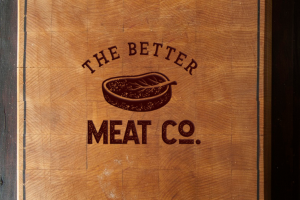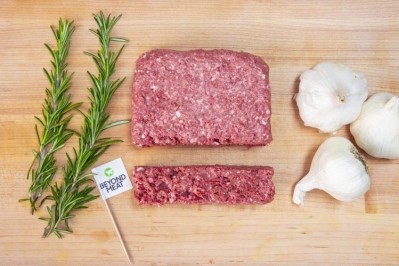‘Henry Ford did more for horses than animal rights activists ever did… technology has enabled us to align our ethics with our behaviors.’ Paul Shapiro talks cell-based meat

By mass-producing cars, Shapiro told delegates at the Industrializing Cell Based Meat Conference in San Francisco last week, “Henry Ford did more for horses than animal rights activists ever did.”
Technology makes it easy for consumers to do the right thing [anyone still lighting lamps with whale blubber?], said Shapiro, author of the best seller, ‘Clean Meat: How Growing Meat Without Animals Will Revolutionize Dinner and the World. “Technology has enabled us to align our ethics with our behaviors.”
In the not too distant future, said Shapiro (who noted that meat consumption is still on the rise in the US despite surveys showing consumers claim to be cutting down), we may look back at factory farming as not only a cruel, but hopelessly inefficient, way to produce protein from a bygone era.
What’s in a name? ‘It’s imperative we resist any efforts to push for an alternative designation for these products’
While some stakeholders worry whether consumers will accept cell-cultured meat, and debate whether marketers should emphasize its animal welfare or sustainability credentials, he added, most food purchase decisions come down to taste, price, and convenience, and if consumers try a Memphis Meats burger, like it, and it’s safe and affordable, why wouldn’t they buy it again?
That said, finding the right terminology for cell-cultured meat will be important, although it’s hard to find something that’s going to satisfy all stakeholders, he acknowledged.
Whether the descriptor is ‘cell-based,’ ‘clean,’ ‘slaughter-free,’ cell-cultured,’ ‘cell-farmed,’ or something else, however, the products are still ‘meat,’ he said.
“These are not ‘alternative’ products and it’s imperative we resist any efforts - whether it’s from the incumbent industry or anyone else - to push for an alternative designation for these products, because it’s just meat… just in the same way that the FTC has recognized that cultured diamonds [diamonds produced in a lab by heating carbon to extreme temperatures and applying extreme pressure] are still diamonds.”*
Branding will likely also play a key role in introducing the public to cell-cultured meat, he said, noting that Beyond Meat and Impossible Foods have reached new consumers (meat eaters/flexitarians) by building brands that focus on how delicious the products are, rather than lecturing people about saving the planet or improving their health, even if these are important purchase drivers for some consumers.
“No one thought electric cars were cool until Tesla came along.”
Hybrid products
One avenue that is worthy of further debate is hybrid products combining plant-based and cell-cultured meat, argued Shapiro, who is also a co-founder of Better Meat Co, a start-up targeting institutional food sellers with plant-based proteins that blend into ground meat products at inclusion rates of up to 30%.

While on the face of it, a plant-meat combo might seem like the worst of both worlds – it’s not all meat, which may put off some meat lovers, but it’s not all plants, which automatically excludes vegans and vegetarians – the success of the blended burger project (which promotes burgers with 75% meat and 25% mushrooms) suggests consumers are open to a hybrid approach.
Indeed, foodservice companies are increasingly open to blended meat products for health reasons (they have less saturated fat and fewer calories) or environmental reasons (they have a lower carbon footprint, and many companies have targets to meet on this front), said Shapiro.
“There won’t be one solution [to reducing our dependence on traditional meat production],” he added, noting that plant-based products have been around for years but have failed to make a significant dent in the market (yet), while meat consumption continues to rise despite growing awareness of animal welfare and sustainability issues.
If the default option in a corporate cafeteria is a pork sausage that’s half pork and half plant-based protein, with less saturated fat, fewer calories, and the same level of protein, and it tastes just as good, consumers wouldn’t have to change their behavior, he said.
“The whole premise of our company is to help make the default option the better option. Just as we want to see plant-based meat in the meat aisle, we also want to see it in the meat.”
* In summer 2018, the FTC removed the word ‘natural’ from its definition of diamonds: ‘a natural mineral consisting essentially of pure carbon crystalized in the isometric system’ meaning the term could equally apply to man-made and mined diamonds.
Further reading:
'Cell-based meat’ not the most consumer-friendly term, reveals GFI consumer research


















